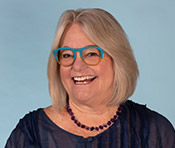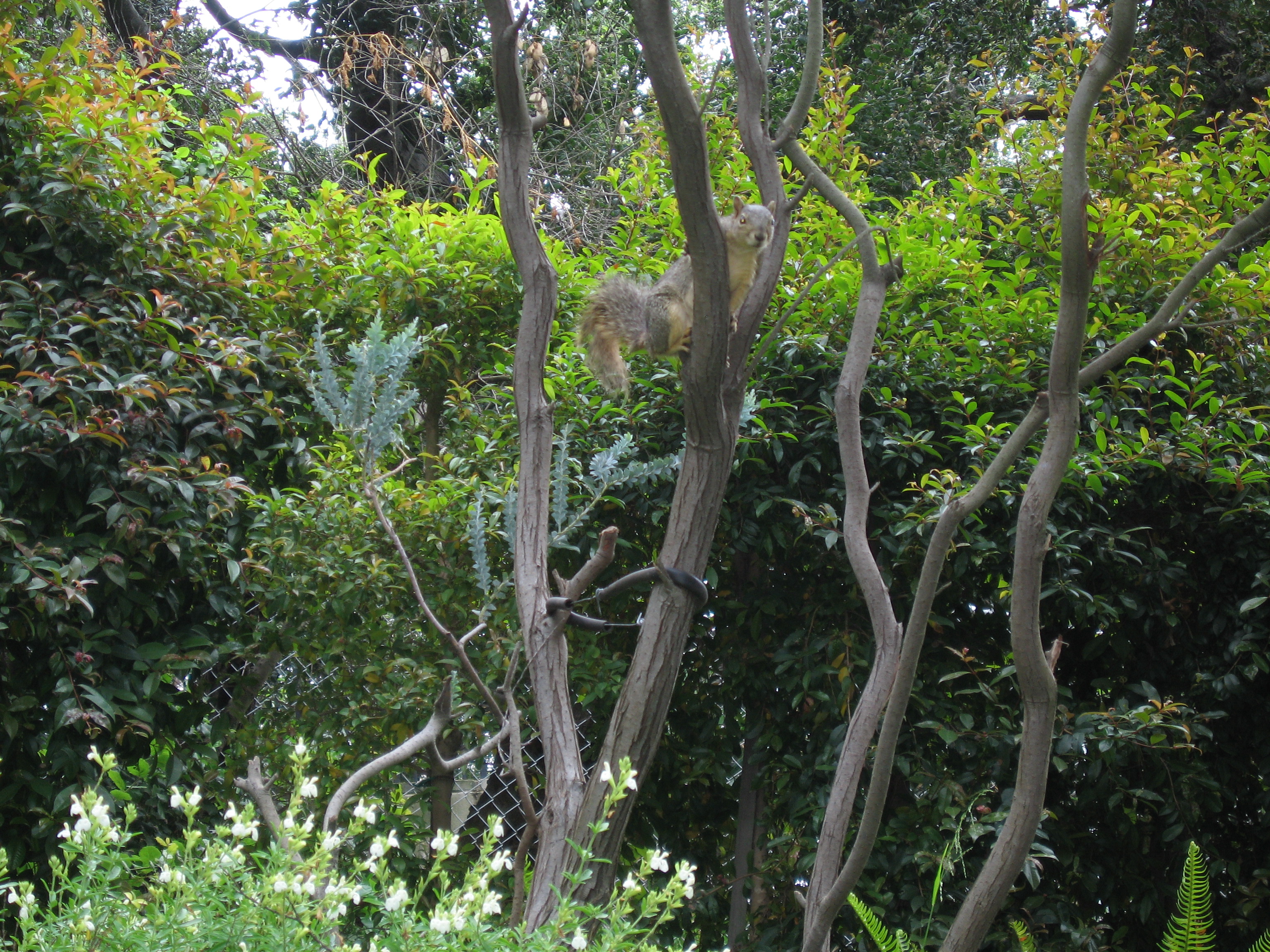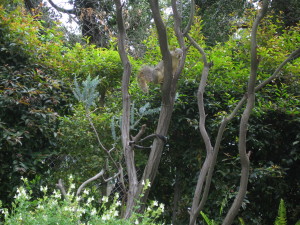This year’s plum tree
It’s the first of May and I am so pleased to see my hillside plum tree full of green fruit. In a few more weeks, I will resume my annual morning ritual of picking ripe, home-grown plums to eat and share with friends. This tree is famous for producing bushels of deliciously sweet purple plums.
This time last year, however, I was shocked by the sight of an almost completely barren tree! For some time I had watched outside my home-office window as the squirrels ate green fruit from my neighbor’s wild tree. I thought briefly about my own tree; but being distracted for months by this darn, persistent economic downturn, I just went back to work, thinking that somehow my tree wouldn’t be the next that the marauding rodents would plunder.
I remembered how the red Christmas garland that had successfully kept them away the previous year was still hanging in the tree. That should have kept working, right? One would think that a psychologist, of all people, would know that if the garland stayed there long enough, the squirrels would eventually figure out that it’s really nothing that’s going to harm them. I guess I should mention that in years past, I have also kept other food available for the squirrels, just in case they were tempted by my plum tree. That is, until last year, when the tree and the squirrels were not at the top of my mind … until it was too late.
This year, I made a point of keeping an eye on the plum tree. As soon as the blossoms came out, I hung miniature “scarecrows” (our dog Truman’s discarded stuffed toys) from the branches and purchased squirrel food. So far, so good; but I’m not taking my attention off the tree and the squirrels until all the fruit is harvested.
I have always believed that a lot of life’s great lessons can be found in gardening and nature metaphors. On its face, this story of the plum tree certainly relates an important lesson for our businesses, health, families, relationships … you name it: There’s no denying that one of the best ways to learn and grow is to make mistakes, to “fail forward.”
However, let’s take a deeper look, at another lesson we can take away from this story. What “plums” (business opportunities, employees, profits, etc.) have we lost because of our making false assumptions or our not protecting against or even paying attention to adverse outside forces? What is it that we don’t know — and won’t find out — until we suffer the consequences of our mistakes? What kind of losses might we experience? And given the “new normal,” with fewer opportunities and smaller margins, how much can we even afford to learn from mistakes?
You can avoid some mistakes by seeking the counsel of others who have a different perspective, because of their own experiences and simply because of their being outside of your organization. Participating in peer advisory groups, like the Vistage groups that I facilitate, is a great way to get expert help in seeing what you don’t know and in getting practical advice on how to handle situations that you’ve never had to deal with before.
Another option is to bring in experienced consultants who can evaluate different aspects of your business. Win-Win Workplace Solutions is assembling a group of independent experts from a wide range of professions who will work collaboratively to evaluate businesses, their business practices, and their people, in order to help them prevent potential errors and losses. They will provide business “checkups” to help identify areas of risk or weakness that may be unknown to business owners.
And of course, you should always keep yourself well informed, by reading and listening to reliable, valuable new information.
To Your Business Success!
Gail Schaper-Gordon, Ph.D., Vistage Chair
Squirrel waiting for the peanuts and seeds being put out as a substitute for plums




